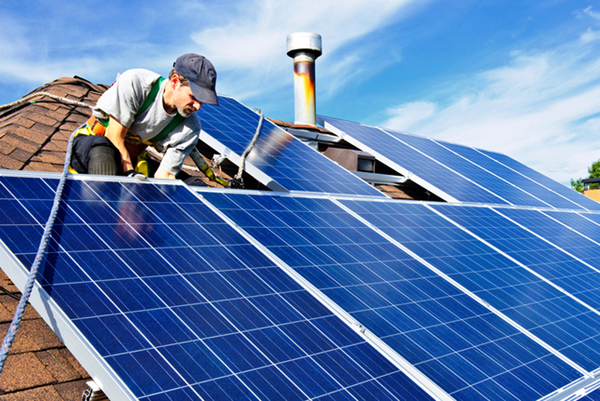- South Texas Students Meet Accordion Music Icons Los Tigres Del Norte In Edinburg Thanks To Khs America/Hohner Alianza Académica Initiative
- Fragile Planet Offers a Nighttime Wildlife Experience
- Falcons Soccer Off & Running
- Cameron County Receives Funds to Improve Two Parks
- Falcons Complete First Half of 32-6A
- School District to Help out Victims of California Wildfires
- Sand Castle Days Continued Despite Unexpected Weather
- Ready for District
- Discussion of Garbage Dumpster Rates, Agreements Between State & City on Highway Regulations, and More
- 31st Annual Shrimp Cook-Off is Right Around the Corner
Teams Compete to Bring Solar Power to Low-Income Texas Communities
- Updated: May 12, 2017

Five teams from Texas are competing for $1 million in prize money in a contest to develop solar access to under-served communities. Photo: Elenathewise/GettyImages
by Mark Richardson
DALLAS – A national competition is underway to expand solar electricity access to low-income communities. Forty-eight teams from 23 states and Washington, D.C., including five teams from Texas, have been selected to compete for $1 million in prize money.
It’s sponsored by the U.S. Department of Energy’s SunShot Initiative and run by SUNY Polytechnic University, where Michael Fancher – executive director of SUNY Polytechnic’s Center for Advanced Technology in Nano Materials and Nano Electronics – said to win, teams must develop a business plan that will work in under-served communities.
“So that, long after the program, you have a vibrant community of these professionals able to continue and incorporate what they’ve learned from each other,” said Fancher, “and replicating that in other low- and moderate-income communities.”
Teams from Austin, Dallas, Floresville, Kerrville and Waco are participating in the contest and have been given seed money to put their projects together over the next 18 months. Winning entries must directly benefit low- and moderate-income households, local governments or nonprofits.
According to Fancher, the idea is to match solar installers with agencies that want to make the move to renewable energy.
“Getting the network activated, and then working with the not-for-profit community and the other participants in the low- and moderate-income communities, is really kind of the focus of this program,” he said, “and you can see that in the allocation of its funding.”
There’s a grand prize of $500,000, with runners-up receiving awards of $100,000 and $200,000.
